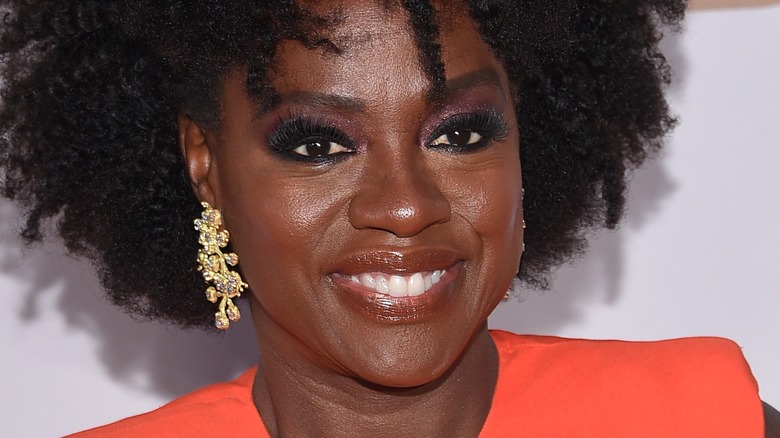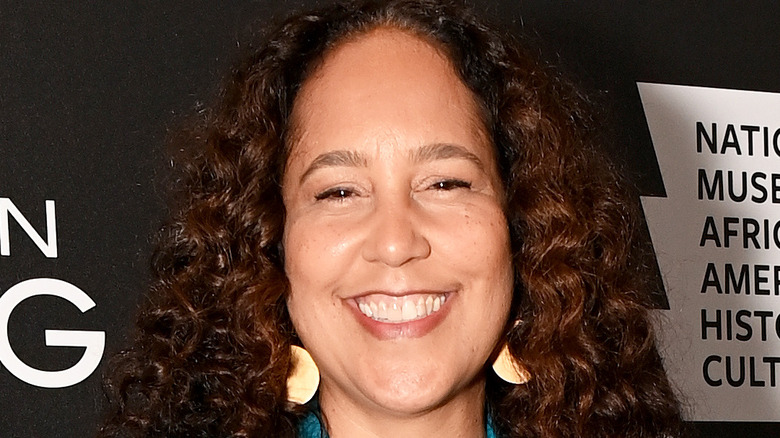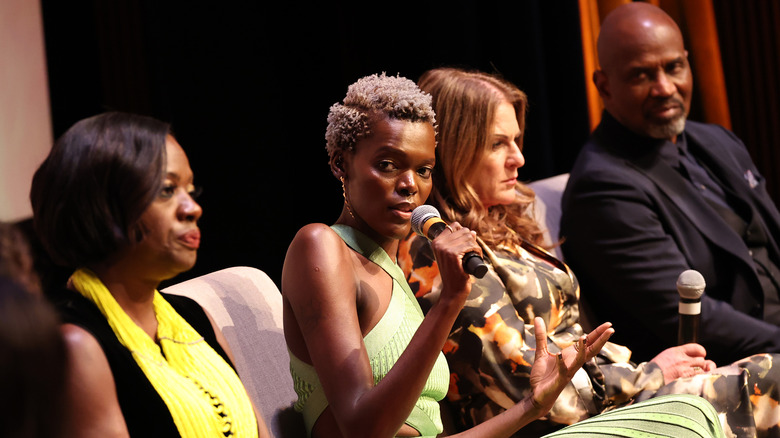Is The Woman King Actually Based On A True Story?
Historical films aren't always very historically accurate. Rolling Stone fact-checked the Queen biopic "Bohemian Rhapsody" and found a number of inaccuracies, such as the original bass player and a completely fictional record executive. According to Popular Mechanics, for all its accolades, Braveheart has been called "one of the least accurate historical movies ever made." And, of course, there are movies like Quentin Tarantino's "Inglourious Basterds" and "Once Upon a Time ... in Hollywood" which change well-known historical events like the death of Hitler and the outcome of the Manson family murders.
The trailer for the upcoming film "The Woman King" promises a story "based on powerful true events." Starring Viola Davis and John Boyega and directed by Gina Prince-Bythewood, the film tells the story of the Agojie, an army of female warriors who protected the Kingdom of Dahomey in the 1900s, also known as the Amazons. So how historically accurate is the film?
It was very hard to research
In an interview with Vanity Fair, Viola Davis and Gina Prince-Bythewood explained the historical research that went into the making of the film. "There is one book [about the Agojie], The Amazons of the Black Sparta — written by a white man," Davis explained. "I had to cross out a lot of it because it was full of editorial comments like, 'They looked like beasts. They were ugly. They were mannish.' You had to sift through all of that."
Prince-Bythewood went on to explain in the same interview how they sifted through the cultural bias of colonizers. "Our production designer, Akin McKenzie — incredible dude — started combing through and excising anything from the colonizer's point of view," Prince-Bythewood explained. "He knew which photos were fake and created for the World Fair. There are so few actual photos of these women. Most of them are recreated."
According to Smithsonian Magazine, warriors by the names of Nanisca and Nawi–two of the warriors portrayed in the film did exist, but they did not go on to live the lives depicted in the film. Researchers did find an account of a French naval officer named Jean Bayol who encountered Nanisca. However, she died three months later and did not become a general — as she does in the film.
Fans have mixed feelings about the accuracy
Despite how difficult it was for Viola Davis and Gina Prince-Bythewood to suss out the truth of the Agojie, many on Reddit claimed to be experts on the subject and began complaining about the film's historical inaccuracies before it was even released. In a thread about the film on the subreddit r/movies, several people voiced their dissatisfaction with the film's perceived inaccuracies.
"This is about the kingdom of Dahomey which sold thousands and thousands of Africans to European slavers and also sacrificed their conquered neighbors in brutal festivals by the thousands" wrote u/Coachbelcher. "I'm guessing they won't focus on that part." Another user, u/Guyo92, wrote "Its [sic] like making a movie about Stalin trying to save as many people in Russia and saying its [sic] based off true events."
However, a conversation about the film's trailer in the subreddit r/blackladies produced far different responses. "Why is the responsibility on Black people to make 100% accurate historical films?" asked u/shenlyism. "I don't remember this requirement for Troy, The Hurt Locker, The Imitation Game, Marilyn, The King's Speech, or any of the eight billion Queen / Princess of Whatever films." Another user, u/Blackmoon1291, seemed similarly unphased by the supposed inaccuracies. "I'm seeing a lot of hate being directed towards this film because of its historical inaccuracies. I dunno, I feel like the internet is looking at the splinter in the eye of this movie and ignoring the giant log in society's eye of neglecting African history as a whole." That user also went on to say that they rarely go to the movies anymore, but would make sure not to miss this one. It seems that, for many, the emotional resonance is more important than perfect accuracy.


